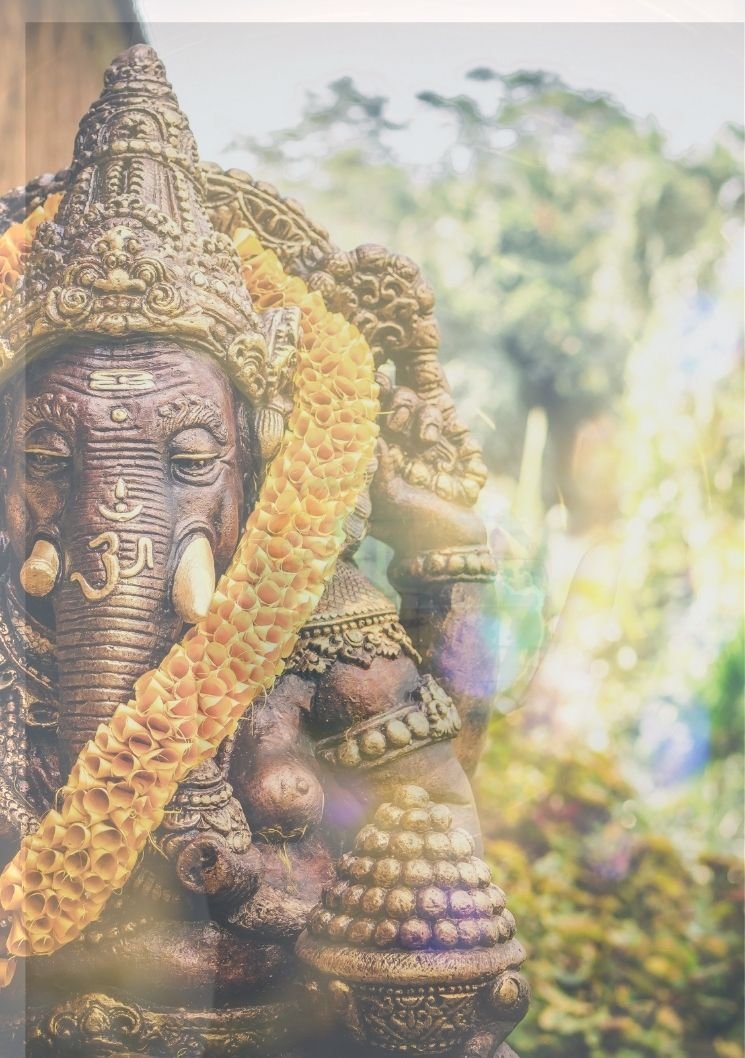
AYURVEDIC HERBOLOGY

Expand your herbal wisdom and deepen your practice with Ayurveda. Join us on this journey into Ayurvedic Herbology for western herbalists.
Please join our 4-week Ayurvedic Herbology course, inspired by the teachings of Ayurvedic Physician Dr. Vasant Lad and designed specifically for Western herbalists seeking to expand their practice through the Ayurvedic lens. This intermediate-level course bridges the gap between Western herbalism and Ayurveda, offering a profound understanding of how medicinal plants interact with the body’s constitution and the rhythms of nature. Herbal formulation in Ayurveda is an art and science that considers the individual’s unique constitution, current state of health, seasonal influences, and lifestyle factors.
Through an exploration of taste (rasa), potency (virya), and post-digestive effect (vipaka), we will uncover how herbs influence the doshas (Vata, Pitta, and Kapha) and the body's natural healing processes. This course places a strong emphasis on herbal energetics, Ayurvedic blending techniques, and traditional preparation methods, allowing you to skillfully integrate Ayurvedic wisdom into your existing herbal practice.
Beyond theory, we will dive into the medicinal properties of specific Ayurvedic herbs, studying their therapeutic actions, historical uses, and modern applications. You’ll also learn how to work with Western herbs through an Ayurvedic perspective, gaining valuable insights into how to select, combine, and apply herbs to restore balance and promote well-being.
Whether you're a clinical herbalist, wellness practitioner, or dedicated student, this course will elevate your understanding of plant medicine, empowering you to support holistic health with greater depth and precision.

What You Will Learn In Your
AYURVEDIC HERBOLOGY CLASS
This four-week course is designed for Western herbalists seeking to deepen their understanding of Ayurvedic herbology—not just learning about individual herbs but exploring the sophisticated energetic system that guides their use.
Ayurveda offers a holistic approach to herbal medicine, one that moves beyond Western herbal actions to consider the energetics of taste (rasa), potency (virya), and post-digestive effect (vipaka), as well as how herbs influence the doshas (Vata, Pitta, and Kapha). By understanding these fundamental principles, herbalists can expand their practice and apply Ayurvedic wisdom to create more personalized and effective herbal formulations.
In this course, we will explore the five prana vayus, or subtypes of Vata, which govern the movement of energy in the body. Understanding these vayus allows for more precise herbal applications and perfecting the art of herbal energetics and the directional flow of prana in the body. This allows us to choose herbs that help restore balance and support the body’s natural rhythms.
We will also study the seven dhatus, or tissue layers, and their role in overall health. Ayurveda recognizes that imbalances manifest in different tissues, from rasa (plasma and lymph), which affects hydration and fatigue, to rakta (blood), which influences inflammation and skin health. Mamsa (muscle) governs strength and tone, while meda (fat tissue) affects metabolism and lubrication. Asthi (bone) supports skeletal health, and majja (nervous system and marrow) plays a role in mental clarity and nerve function. At the deepest level, shukra/ojas (reproductive tissue and vitality) is responsible for immunity, energy, and overall resilience. Throughout the course, we will explore which herbs nourish and support each tissue layer, offering deeper insight into the systemic effects of plant medicine.
Another key concept in Ayurvedic herbology is agni, or digestive fire—the driving force behind digestion, metabolism, and transformation. When agni is weak, toxins (ama) accumulate, leading to stagnation and disease. When balanced, agni promotes clarity, vitality, and optimal health. We will explore how to strengthen and balance agni using Ayurvedic herbs, formulations, and dietary principles, allowing for better digestion and overall well-being.
To bring this knowledge to life, we will study 20 key Ayurvedic herbs in depth, working through herbal monographs that detail their energetic properties, traditional uses, and modern applications. Through tasting, hands-on practice, and formulation exercises, you will develop a direct, experiential understanding of how these plants work and how they can be integrated into your Western herbal practice.
This course is designed for herbalists, practitioners, and wellness professionals who want to bridge the worlds of Eastern and Western herbal medicine. By the end of our time together, you will have a deeper understanding of how Ayurvedic herbalism works, how it complements Western herbalism, and how to apply these principles to your practice in a meaningful way.
Course Details:
Duration: 4 weeks
Investment: $495
Join us for this comprehensive immersion into Ayurvedic herbalism and develop a more holistic, nuanced approach to plant medicine.

